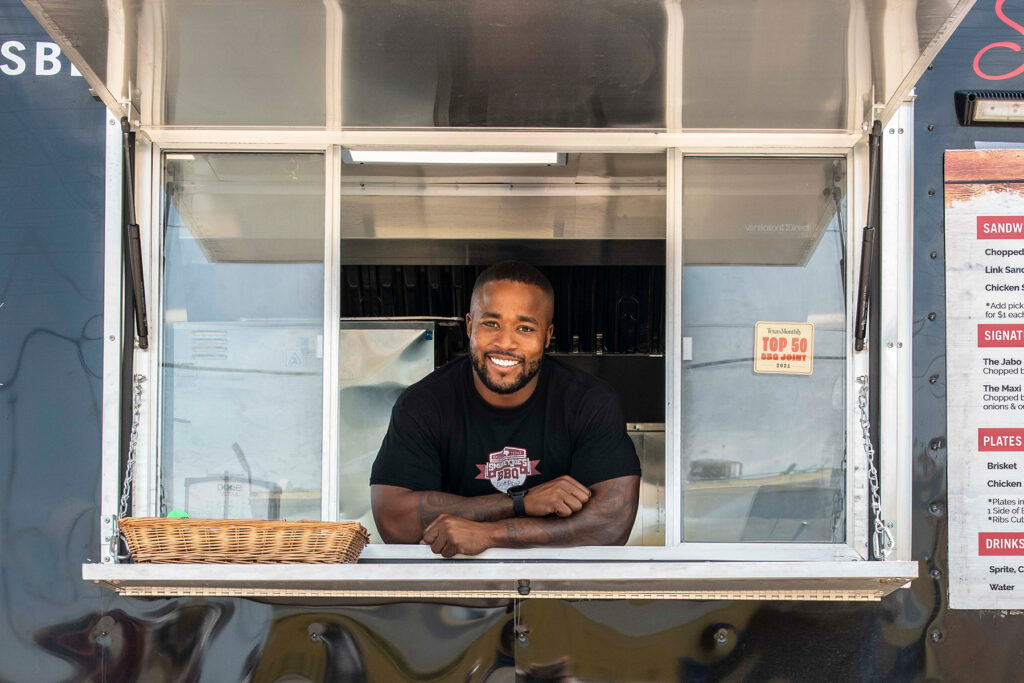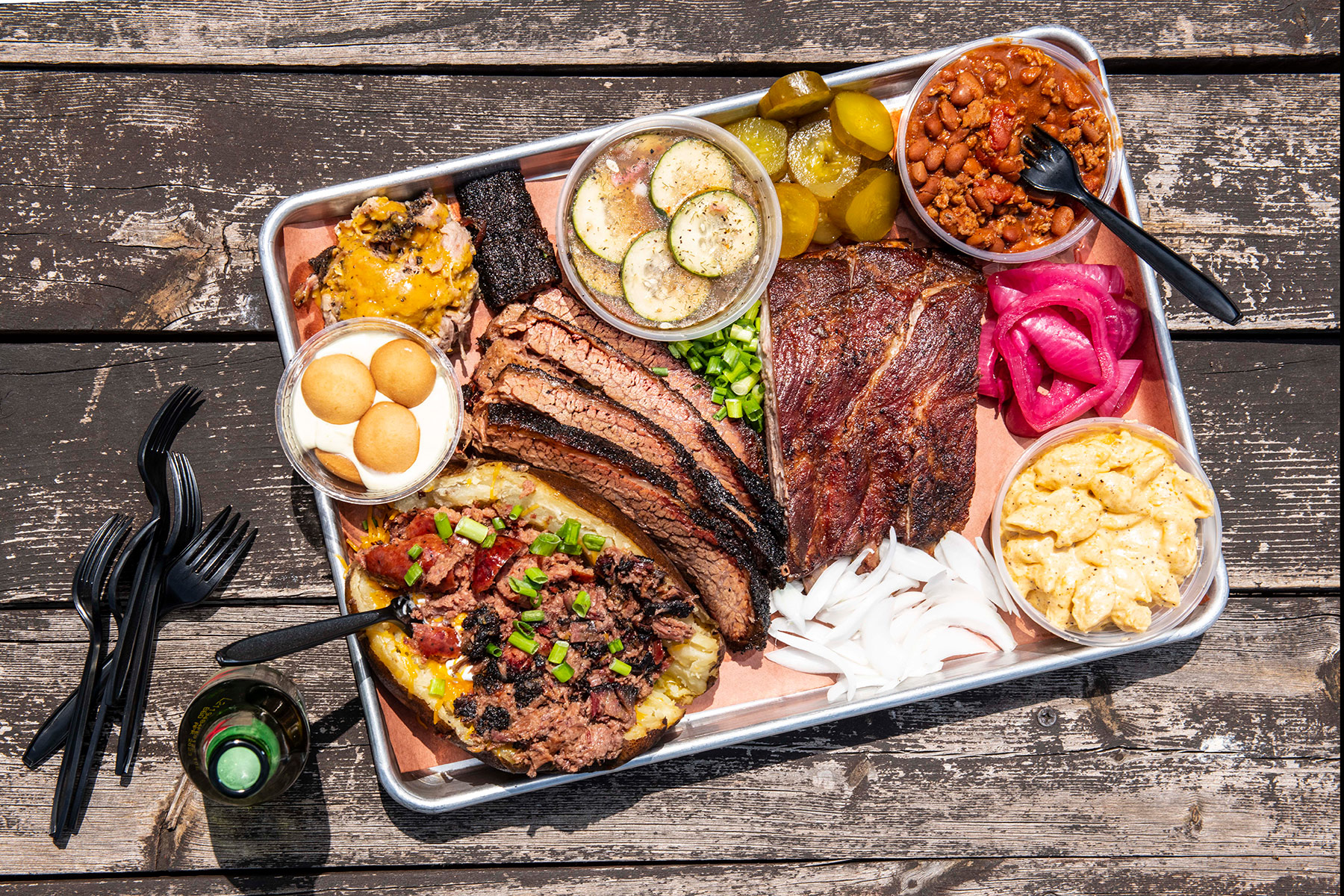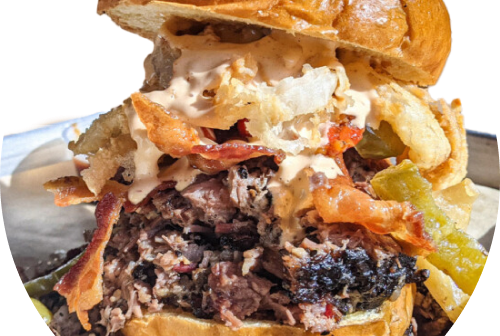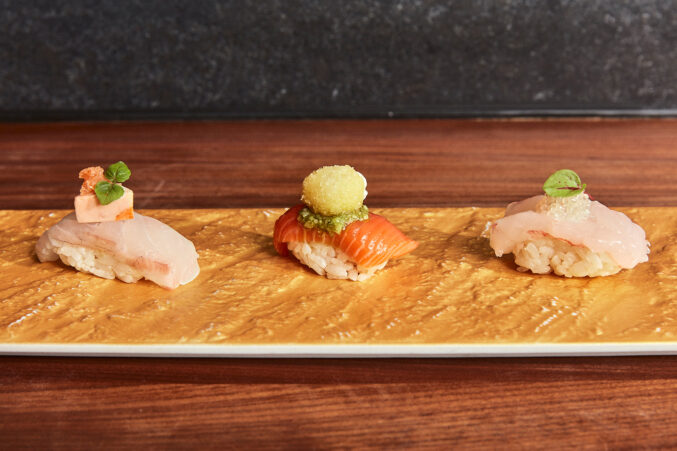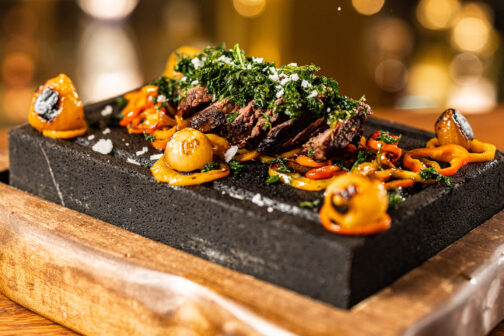For years, Dallas’ government fought a stubborn war against food trucks, trailers, and carts. Food trailers were allowed to operate only at special events and had to get separate permits for each event. Food trucks pulled up to a limited number of locations, such as Klyde Warren Park, and had to drive to their commissary kitchens every single day. Mobile kitchens were forbidden from cooking raw chicken or fish, unless it was breaded, frozen, and deep-fried.
Dallas was effectively throttling a form of food service that, in other cities, is an easy entry point for new entrepreneurs and small business owners. But in April, the Dallas City Council unanimously approved a dramatic rewrite to the city’s food codes, allowing the mobile meal revolution to get underway.
Among other things, the new code allows trailers to operate outside of events, affords more flexibility on the design and renovation of trailers and trucks, lets chefs cook raw fish and chicken in their mobile kitchens, and significantly reduces regulatory fees. The liberation of trailers is especially important, since a food trailer costs so much less than a truck. Even used trucks can start at $75,000, and that’s before any renovation, repairs, or gasoline. Beginning chefs now have an affordable alternative.
“We just cut their costs in half,” says Jason Boso, owner of Truck Yard and a member of the committee that advised the City Council on the new guidelines. “We cut their upfront capital costs at least in half. We gave them their time back.” Boso also points out that trucks, in his experience, guzzle gas and break down frequently.
Boso has already seen the effects. He operates a commissary kitchen for his Truck Yard tenants, and within six weeks of the new code’s passage, his kitchen was full. “These people who might have been running out in Garland or other suburbs are saying, ‘My trailer’s OK in Dallas now; let me get down there and start pulling new business,’ ” he says.
Kris Manning, the owner of Smokey Joe’s BBQ in Oak Cliff, recently acquired a new trailer, dubbed The Creole Bowl, with Clinton Joseph. The original plan was to move the Cajun operation to Houston. Now, though, it may stay home.
“When we were going through our new trailer, it was 90 percent up to code in Houston, and here in Dallas it was only like 60 percent up to code,” Manning says. “Now we’ve got hopes it will be more worth it to make sure everything is up to code to operate in the city of Dallas.”
The Creole Bowl isn’t Manning’s sole mobile food outlet. Smokey Joe’s has its own barbecue trailer, which he originally bought not knowing that trailers were only allowed at special events. He learned the hard way while trying to get permits. With trailers freed from those restrictions, the Smokey Joe’s trailer sits in front of the restaurant every Tuesday, serving meals to go so that other employees can deep clean the brick-and-mortar restaurant.
With new start-up-friendly rules, we can expect new cooks with new voices to emerge as Dallas experiments with no-permit-needed spaces in Pacific Plaza and Kiest Park. One privately organized spot to keep an eye on is I-30 Market, near Dolphin Road in East Dallas, where a breakfast taco truck called Naro’s aspires to attract more trucks to keep it company.
Boso thinks that the casual nature of mobile kitchens will help broaden Dallasites’ tastes, too. Since you don’t need to invest in a full sit-down experience, trucks and trailers allow you to sample and graze. “It’s hard to walk into a restaurant not knowing what you want,” he says. “Going to a truck yard or a park, where you can walk up and read the menu and try one thing that costs $7, that helps our city open up our palates.”
The New Mobile Food Rulebook
- Food Trailers
- Raw Poultry and Fish Are a Go
- Conversion Opportunities
- Commissary Visits
- Permits and Fees
Food trailers can operate outside the context of special events.
Mobile food chefs can cook raw chicken and fish in their trucks or trailers rather than cooking the meats elsewhere and transporting them.
Entrepreneurs can convert a truck, trailer, or shipping container for food service rather than buying a vehicle commercially made to serve food.
Mobile food chefs need to visit their commissary kitchens only once a week rather than every single day.
Permits and fees are now significantly cheaper, and codes allow more flexibility in kitchen design.
Vendors may pull up at breweries and bars, like they do in Austin, where beer garden-barbecue trailer Distant Relatives just received James Beard Award recognition. It’s something Manning has kept an eye on, watching his colleagues in the barbecue business benefit enormously from thriving food trailer scenes in other Texas cities.
“For your average person, even the difference between buying a food trailer and a food truck is a really big difference,” Manning says. “Look at a lot of your top barbecue places in Texas. Heim Barbecue, where did they start? Evie Mae’s. Distant Relatives. Valentina’s. That is literally where everybody starts. It makes sense because that gives us an opportunity to build a clientele, to see if we have what it really takes, without going into huge debt. Once we have that, then we can guide that clientele into our restaurant.”
Maybe one of them will turn into Dallas’ next iconic place to eat.
This story originally ran in the August issue of D Magazine with the headline, “Meals on Wheels.” Email [email protected].
Author



